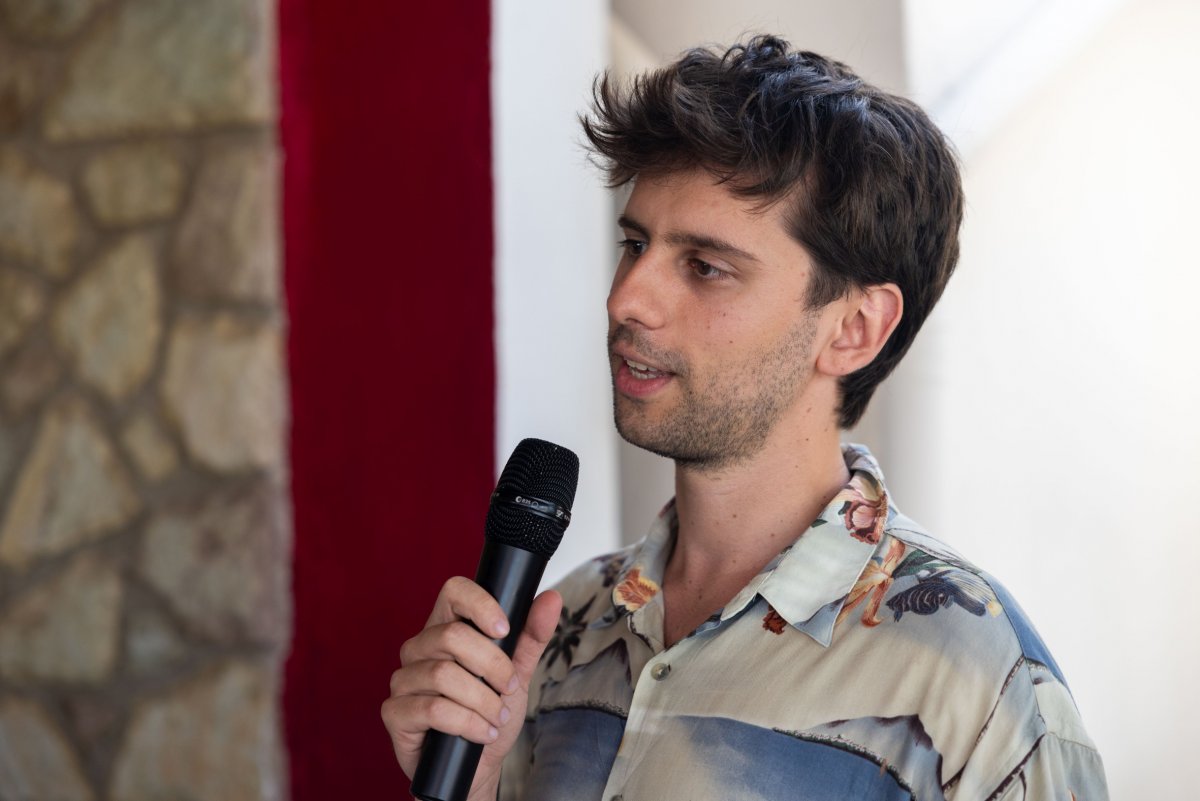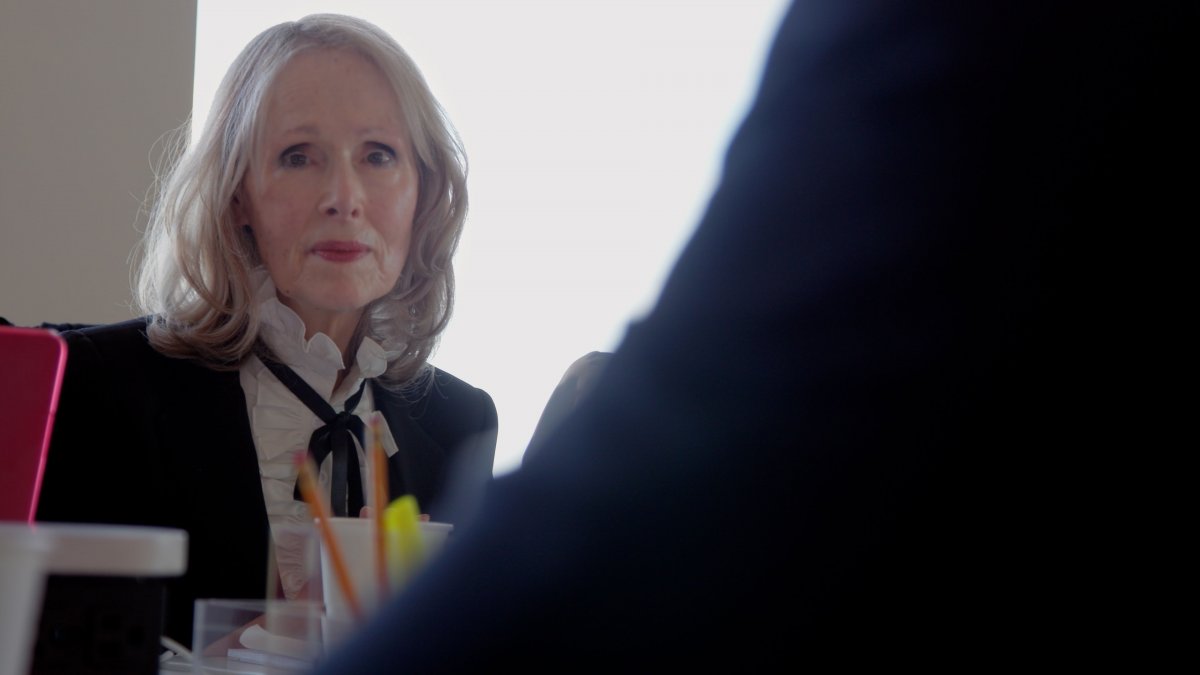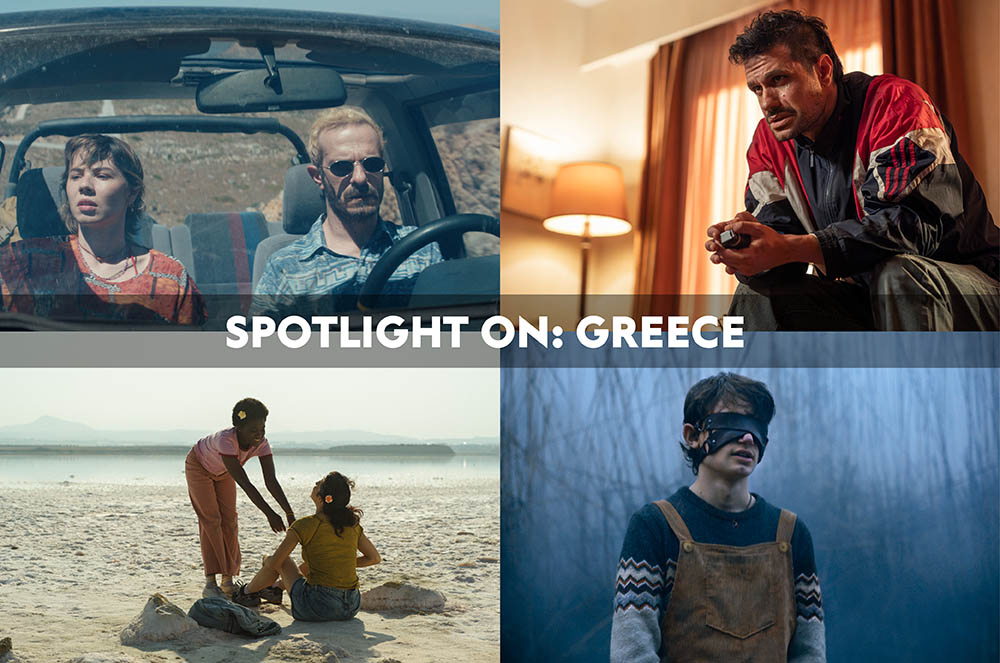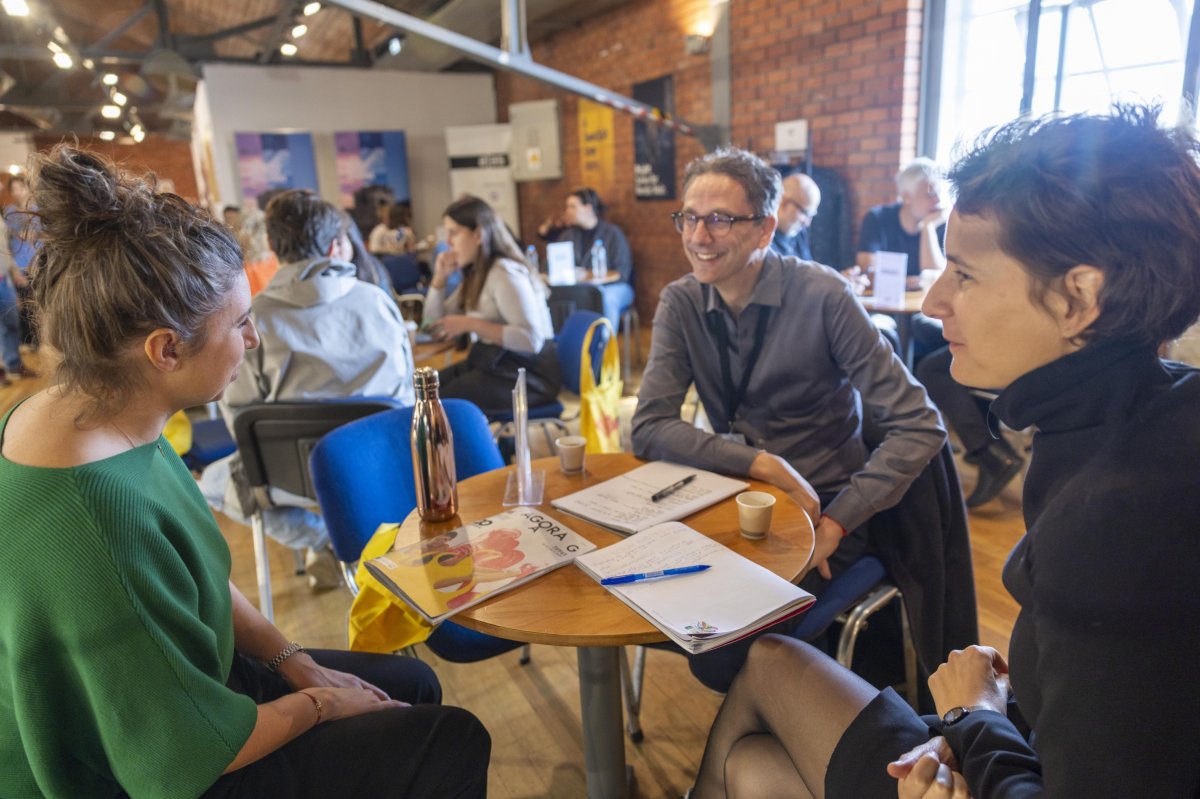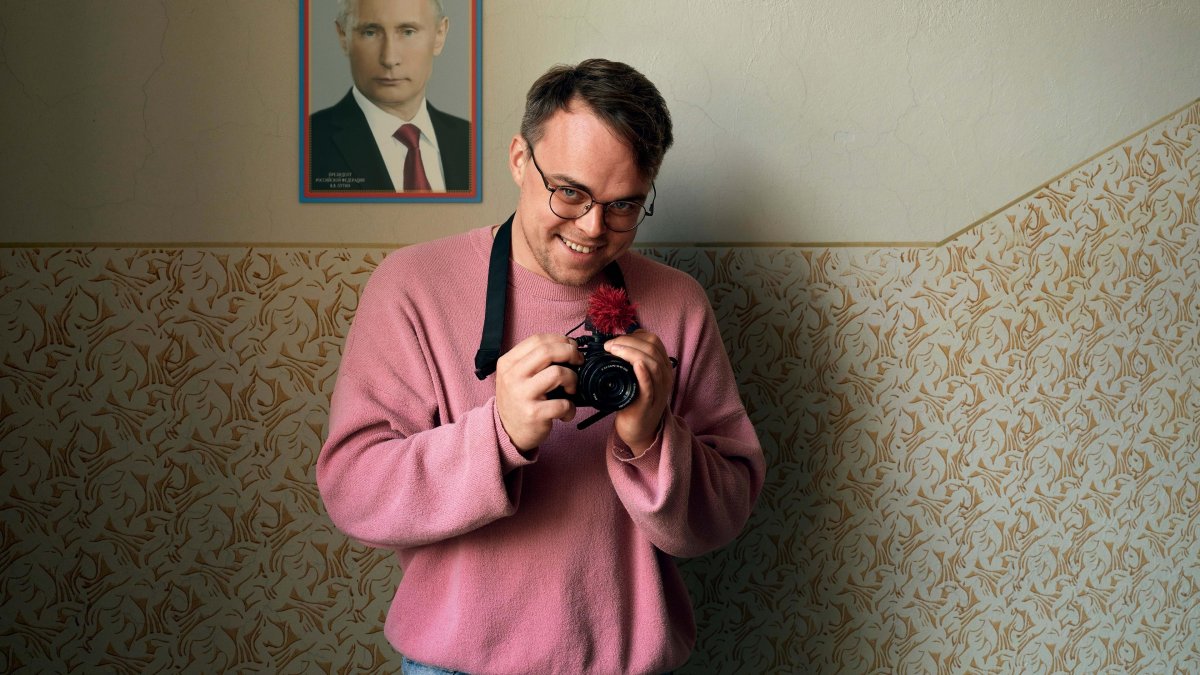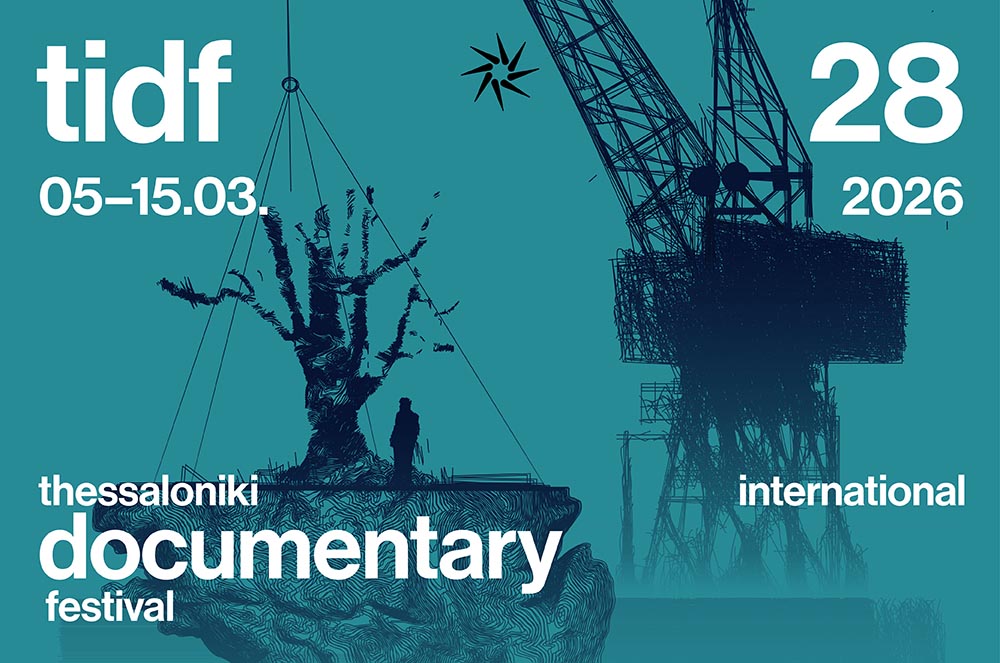The 4th Evia Film Project, Thessaloniki Film Festival’s green initiative which is carried out with the support of the Ministry of Culture, resumed on Friday June 20th, with a series of masterclasses in Agia Anna, screenings, and an all-day discussion in Limni dedicated to the Greek summer.
Maria Anestopoulou, the Artistic Director of the ΑΝΙΜΑSYROS International Animation Festival, Yorgos Angelopoulos, the Artistic Director of the Drama International Short Film Festival, and Kostis Charamountanis delivered insightful masterclasses in Agia Anna, within the framework of the Evia Film Project’s specialized workshop, tailor-made for the students from the Department of Digital Arts & Cinema at the National & Kapodistrian University of Athens, based in Psachna Evia.
During her speech entitled “ΑΝΙΜΑSYROS International Animation Festival: Young creators and animation in the Greek region,” Maria Anestopoulou stressed that she and her collaborators place great importance on the promotion of Greek animation internationally: “We achieve this extroversion through collaborations with other Festivals, while we also curate programs that are shown in other countries. Furthermore, we are the first Animation Festival in Europe that boasts a special competition section for films with LGBTQI+ themes, called ANIMAPRIDE.” Regarding the educational programs offered by ANIMASYROS, she stated: “The educational programs are how we make interventions, and reach out to the community of Syros. For example, 80% of our program consists of films targeted at adults, while the remaining 20% is for children. The kids watch surprising films at our festival, films they aren’t expecting as we don’t screen commercial creations that secure distribution with ease. As such, our educational programs help us reach not only our target audience, the children, but also the university students in Syros, the people with disabilities, as well as the elderly.”
On the subject of the ANIMASYROS Agora, she remarked that it has evolved considerably in recent years: “Our primary objective is networking, to facilitate the connection between Greek industry professionals and the international market, offer new creators the opportunity to showcase their projects so that they can gain access to producers in Greece and abroad, and follow the current trends in animation. Of course, the Pitching Forum is a big part of the Agora, and over these past few years, it has been organized in collaboration with the greatest animation festival in the world, the one in Annecy.” Finally, she explained that the reason she loves animators is how approachable they are, an element she thinks has much to do with the fact that “these people are craftsmen who work with their hands quite a lot.”
Yorgos Angelopoulos offered the students some pieces during his presentation, which was titled “The great adventure of short films”: “The stage you are in right now is of great importance. Enjoy it, appreciate it, and avoid thinking about short films as a necessary evil that you just can’t wait to be done with. Short films are an independent genre, a field that lends itself to experimentation, self-expression, and getting acquainted with the cinematic medium. This offers you unimaginable freedom, a freedom you won’t have in the long run. It is worth enjoying it now while you have it.” Talking about the trajectory of a film, he added: “Even if your film isn’t selected for a festival, you shouldn’t believe it’s a failure. Because you have gained something invaluable in its making.” He was keen to stress: “It’s important to always keep in mind that you are making art, you’re trying to make a statement. Be honest with yourselves, and your message will reach its intended audience, even if you must upload your film on YouTube.”
Discussing short films in the Greek cinematic landscape, he mentioned the following: “Short films, especially in Greece, are a difficult endeavor – primarily because they are considered a hobby by many people, and also because cinema isn’t a priority. Try to approach short films under your own terms, and as you wish. It’s an independent genre with specific requirements, for example the narrative needs to be condensed. In this extremely short amount of time, you must deliver a completed narrative and a message. This is a major challenge even for full-length films.” Then, he referred to how an idea is conceived: “The concept must come from within you, avoid constantly ruminating on how to make your film a success, how to increase its chances of being selected for a festival. To tell you the truth there is no recipe for success. The only way for your film to be considered authentic and true is for it to originate from you, and not be an attempt to imitate or copy something else.” Concerning the production of a film, he commented: “During the production of a short film, the funds are never enough. But you must always be flexible, accept as soon as possible that the film you have come up with might not turn out as you’ve imagined it, and be open to surprises.” Finally, he underlined the importance of a team that “believes in and shares the filmmaker’s vision.”
In the masterclass he delivered, Kostis Charamountanis, the director of the film Kyuka: Before Summer's End, spoke about the creative avenues one can follow to make a film, develop ideas, convert raw creative material into a structured narrative, and effectively present concepts. “I started out with minimal knowledge on acting, I didn’t know how to write a script, had no clue about directing, knew absolutely nothing. Graduating from the Athens Conservatoire, I began writing music for theater and cinema. However, this didn’t fulfill me, I yearned for something more comprehensive, more challenging, something that I had complete control over,” he said. Immediately afterwards, he noted that in school he was involved in a group that wrote skits and put on performances. He was in the team in charge of directing and costume design. “That’s how I realized I liked making stories,” he pointed out.
“If you are a film director, or a scriptwriter, your job is to create. Everything else beyond that is the producer’s job – festivals, promotion, awards, etc. It’s best if you don’t think about it at all,” he stressed. He added that if a filmmaker’s thoughts linger too much on promotion and success, they risk unconsciously adapting their work around this axis and ending up recycling the same themes over and over again. Moreover, he urged the students to focus on themes they want to explore, on “stories that personally concern them,” assuring them that “if the film is good, it will forge its own path. It won’t get lost in the rabble; there is no way.”
Later on, he discussed the process a filmmaker goes through to discover their artistic identity, making sure to write a riveting script, create something with passion, and learn from their mistakes. “There is no other way to stand out, to create films that carry your mark,” he stressed. Finally, he declared that “the work begins after graduating, that’s where true passion becomes apparent, that's where it you understand who really wants to pursue cinema, and who is really motivated by it. In essence, it’s all about the personal effort you put in, and the studying you do. If you start from scratch, it shows in your work.” He went on to say that he hadn’t attended a film school, but that he learnt the art of cinema through films. “This process was practically my own film school,” Kostis Charamountanis concluded.
Screenings
Dozens of children and teenagers participated in two unique robotics workshops, held in Edipsos and Limni, where participants aged 6-17 crafted their own film with the aid of innovative robotic systems. The short film created by the children were unveiled on Friday evening, prior to the screenings of the films Madagascar in Edipsos, and Before Midnight in Limni.
At the Apollon move theater in Edipsos, the Festival’s Artistic Director, Orestis Andreadakis thanked the President of the Hellenic Robotic Sports Federation, Manolis Tselepis, while medals were awarded to all of the children who attended the screening and participated in the workshop. This was followed by the screening of the film Madagascar, and later on Steve Krikris’s documentary, Super Paradise, which had its global premiere at the 27th Thessaloniki International Documentary Festival. The director, Steve Krikris, and the film’s producers, Dafni Kalafati and Paul Typaldos, attended the screening. Immediately afterwards, a conversation between the audience and the film’s contributors took place.
Argyris Papadimitropoulou’s film, Suntan, was screened at the Fishing Shelter in Agia Anna. In Suntan, which is quite relevant to this year’s thematic core, Makis Papadimitriou and Elli Tringou approach the island of Antiparos and the Greek summer from a different perspective.


